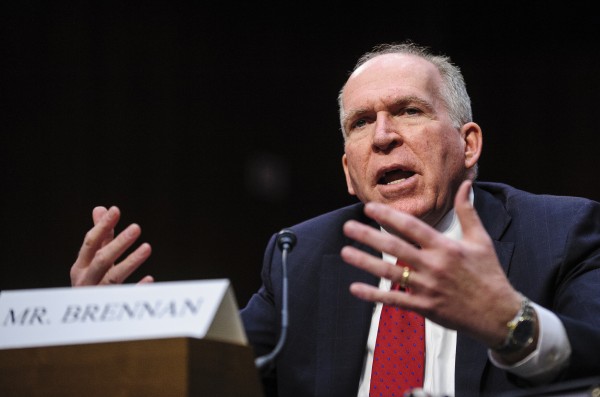Fordham: Are We Passive Towards Torture?
April 29, 2015
Colleges and universities across the world have revoked graduates’ degrees for a variety of offenses—in this sense, Fordham University’s current conflict regarding Central Intelligence Agency (CIA) Director John O. Brennan, Fordham College at Rose Hill (FCRH) ’77, is not unique. However, what complicates our situation is that Brennan has held a bachelor’s degree from Fordham since 1977, and was bestowed with an additional honorary degree in May 2012 when he delivered the commencement address.
Brennan has defended the CIA’s use of violent tactics and failed to address the issue of torture revealed with the release of the CIA report in December 2014, which detailed abuses against detainees that can only be described as nightmarish human rights violations. Such violations included threats to kill and sexually abuse the loved ones of their prisoners, detainment in cramped dark environments, the use of wall shackles and vile acts such as rectal feeding and waterboarding. Further fueling the fire is the fact that Fordham President Rev. Joseph M. McShane, S.J., gave Brennan the Brien McMahon Award for Distinguished Public Service in September 2014, just three months before the torture report was released. How can Fordham University, an institution that prides itself on producing well-rounded individuals committed to service and bringing about real and lasting change in the world continue to support, through their passivity, a man who stands against all that? How can they give him the same award they once gave to Mother Teresa?
We can’t expunge Brennan’s years as a student at Fordham—nor should we. After all, Harvard University never denied that Ted Kaczynski (the Unabomber) was a student, and the London School of Economics ultimately decided to let Saif al-Islam Gaddafi keep his Ph.D. But we can revoke his honorary degree, his McMahon Award, and prove that we are truly an institution that cares for others and fights for justice.
Since Brennan was a student here, there is a question of whether or not revoking Brennan’s honorary degree will send the message that we want, that Fordham does not “implicitly endors[e] the ‘War on Terror,’ the use of rendition, the CIA’s heinous drone campaign, and the subversion of the rule of law in America, including the assassination of its own citizens,” in the words of the Change.org petition launched by two Fordham students in 2012. However, a diploma earned through attending classes and completing the requisite work has a different meaning than an honorary degree. In the case of the former, Fordham puts all they can into educating the student—both in their field of interest and in Fordham’s strong values—but what the student does with that knowledge after graduation is largely up to the student himself. Granting an honorary degree, however, signals Fordham’s belief in and support of the recipient’s achievements. Brennan may be a Fordham graduate, but from what he has shown the public, it is clear that he has left his Jesuit education behind. Revoking Brennan’s honorary degree would send an especially strong message; it would show that Fordham’s commitment to justice is so strong, that it would even withdraw accolades they’ve bestowed upon a former student.
McShane’s call for a dialogue between Brennan and groups like Fordham Faculty Against Torture, (FFAT), calling for the revocation of the honorary degree and McMahon Award, still bears merit, even in a climate in which Brennan has failed to properly address the issues of torture and humans rights abuses of which he stands accused. Could it be that an open, productive discussion is possible within the walls of his alma mater? Possibly, but if the trend of silence and denial continues, then at least we can peacefully rescind his awards, confident that not only have we kept our commitment to justice and service, but that we have also created a space for debate and discussion.












